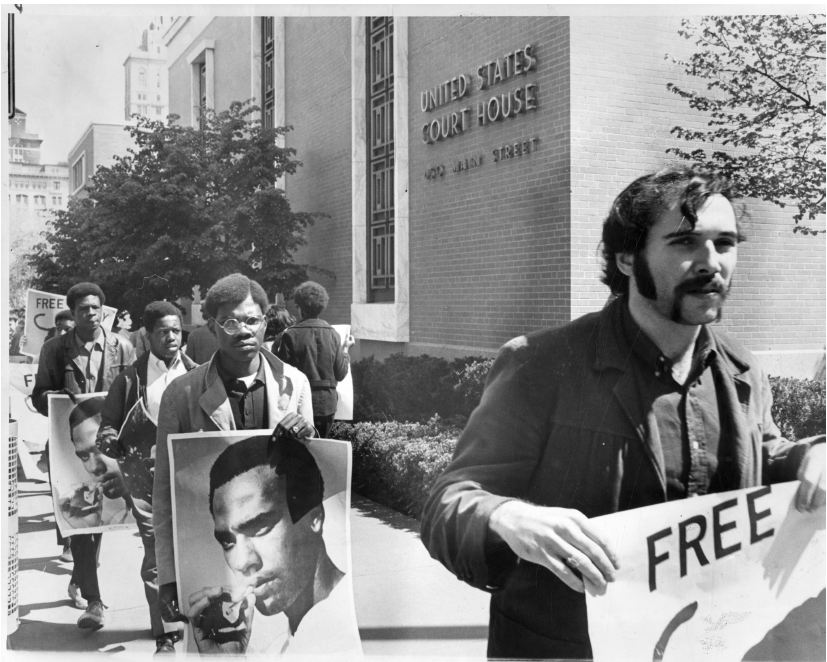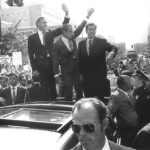
Protestors on May 1, 1969, in Hartford carried signs bearing a photograph of Huey P. Newton, a founder of the Black Panther party, and flags with the party emblem, a charging black panther. The Black Panther party was an often-militant group determined to bring justice to African Americans and was philosophically opposed to Dr. King’s program of nonviolent resistance. Photograph by Ellery G. Kington – The Hartford Times Collection, Hartford History Center, Hartford Public Library
Postwar United States (1945–1970s)
Struggles over social, moral, military, and environmental conflicts dominated headlines across the country in the decades following World War II, as Americans took a stand on issues of race and gender equality, Cold War political ideologies, and growing military involvement in Southeast Asia. The landmark case of Griswold v. Connecticut set the stage for national battles over women’s reproductive rights, while racially charged riots brought life in major cities, such as Hartford, to an alarming standstill. Despite a terrible flood in 1955, Connecticut expanded its infrastructure during the post-war era, helped by the opening of Interstates 84 and 95 and the expansion of residential settlements meant to meet the demands of a growing “baby boomer” population.
Featured
The 42-Day Income Tax
In 1971, to eliminate the state's budget deficit, Connecticut legislators approved a tax on income. Just forty-two days later, they repealed it, instead voting to increase the state's sales tax. …[more]





